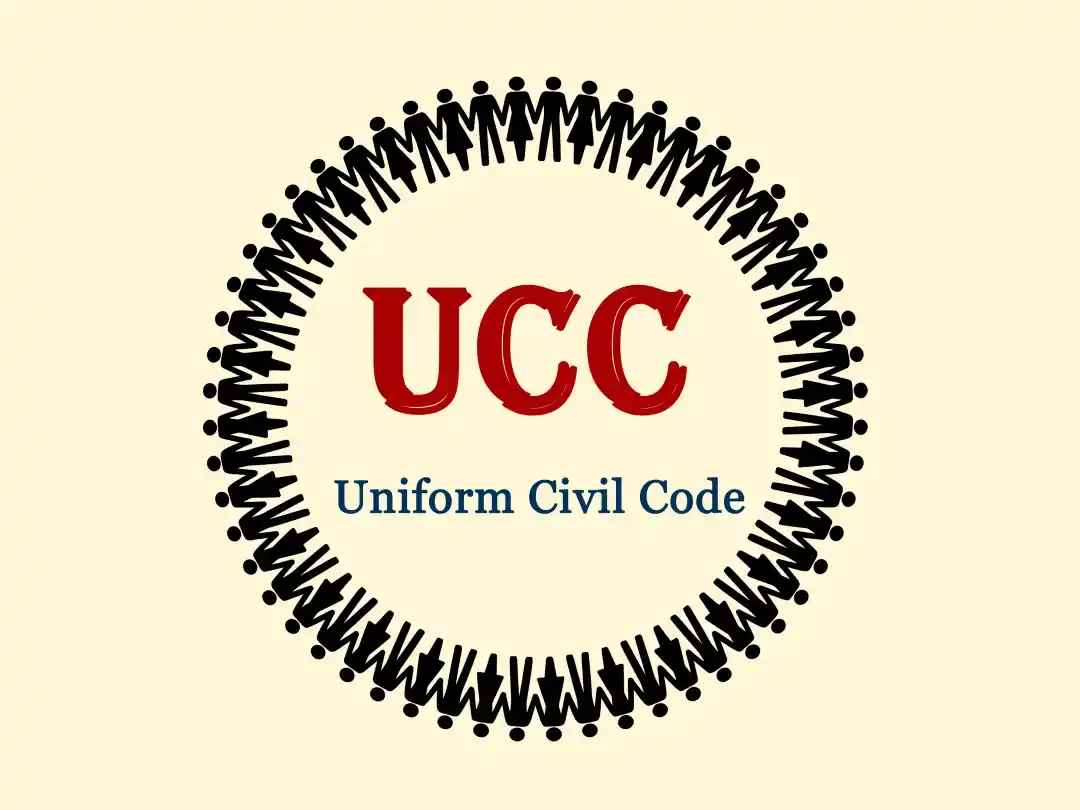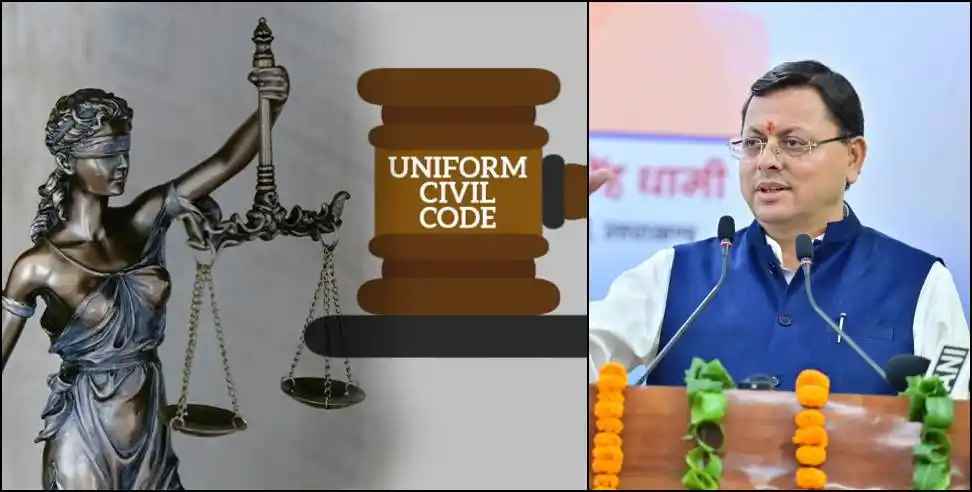Understanding the Uniform Civil Code: One Nation, One Law
Updated on : 27 January, 2025

Image Source: google.com
The Uniform Civil Code (UCC) is a legal framework that aims to apply the same personal laws to all citizens, regardless of their religion, community, or gender, ensuring equality and justice. It seeks to replace religious-based personal laws with a unified set of laws governing areas like marriage, divorce, inheritance, and adoption. While India’s Constitution envisions a UCC under Article 44, it has not been fully implemented across the country. Uttarakhand has become the first state in India to officially introduce and implement a draft UCC, aiming to promote social unity, gender equality, and secularism by ensuring equal treatment for all its residents.
Introduction
The Uniform Civil Code (UCC) is a proposed legal framework aimed at unifying personal laws for all citizens of India, irrespective of religion, gender, or community. Envisioned as a step toward ensuring equality and justice, the UCC has become a highly debated topic in India today. It is rooted in Article 44 of the Indian Constitution, which urges the State to strive to implement a uniform civil code for all its citizens.
- This debate is particularly relevant now, given the growing demand for gender justice, secularism, and national integration.
- The UCC touches upon sensitive areas such as marriage, divorce, inheritance, and adoption, which are currently governed by diverse personal laws based on religious practices.
- The proposal raises important questions about balancing cultural diversity and constitutional principles.
Historical Context
The historical context of the Uniform Civil Code (UCC) in India traces back to colonial times when personal laws were retained to maintain communal harmony. After independence, the need for a unified legal framework was recognized during the Constitution's drafting, with leaders like Dr. B.R. Ambedkar advocating for it, although its implementation was deferred to avoid communal tensions. Significant milestones, such as the Shah Bano case in 1985, highlighted the inconsistencies in personal laws and reignited discussions on the necessity of a UCC for ensuring equality and justice.
Evolution of UCC in Indian Legal and Political History
- The concept of a uniform civil code has its origins in colonial India.
- The British administration retained the personal laws of various religious communities to avoid conflicts, a policy that continued post-independence.
- However, the need for a unified legal framework was recognized during the drafting of the Constitution.
- Dr. B.R. Ambedkar and other leaders emphasized its importance but deferred its implementation to preserve communal harmony.
Important Milestones and Cases
- One of the most pivotal moments in the UCC debate was the Shah Bano case in 1985.
- The Supreme Court’s judgment in favor of Shah Bano, a Muslim woman seeking alimony, sparked widespread controversy and led to amendments in personal laws, reinforcing the need for a UCC.
- Other significant cases, such as the Sarla Mudgal case, have also highlighted the inconsistencies and injustices arising from diverse personal laws.
Recommendations by Past Committees
- Various committees and commissions, including the Law Commission of India, have recommended implementing a UCC.
- Their reports underscore the potential of the UCC to simplify the legal framework, reduce conflicts, and ensure gender equality.
Latest News and Developments

Image Source: google.com
Recent Discussions in Parliament
- The UCC has gained renewed attention in the Indian Parliament, with several debates and proposals highlighting its importance.
- Recent bills and discussions emphasize the need for uniformity in personal laws to achieve gender justice and secularism.
- In india the Uttarakhand becomes first state to implement Uniform Civil Code
State-Specific Initiatives
- Certain states, such as Uttarakhand, have initiated efforts to draft and implement a UCC at the state level.
- These initiatives demonstrate a phased approach to addressing the complexities of unifying personal laws.
Statements by Key Leaders
- Political leaders and public figures have voiced varying opinions on the UCC. While some advocate for its implementation as a means to promote equality and national integration.
- Others express concerns about its potential impact on cultural and religious diversity.
Reactions from Civil Society
- Progressive groups view the UCC as a step toward modernizing India’s legal framework.
- Religious organizations and minority groups perceive the UCC as a threat to their cultural identity.
Popular Blogs
Understanding Uniform Civil Code
The Uniform Civil Code (UCC) is a set of laws that applies equally to all citizens, regardless of their religion, community, or gender, covering personal matters such as marriage, divorce, and inheritance. Its goal is to promote equality, secularism, and national unity by replacing personal laws based on religious customs with a common legal framework.
Scope and Objectives
- The UCC aims to replace existing personal laws with a common set of rules governing marriage, divorce, inheritance, adoption, and other family matters.
- Its primary objectives are to ensure equality, promote secularism, and simplify India’s legal system.
Key Areas of Personal Law
- The UCC seeks to address disparities in marriage laws, divorce proceedings, inheritance rights, and adoption practices across religious communities.
- For example, Hindu, Muslim, Christian, and Parsi laws currently operate under separate legal frameworks, leading to inconsistencies.
Current Status of Personal Laws
- Personal laws in India vary significantly across communities. For instance, Hindu law is codified in acts such as the Hindu Marriage Act and Hindu Succession Act, while Muslim law largely follows Sharia principles.
- These differences often result in unequal treatment of individuals based on religion and gender.
Arguments in Favor of UCC vs Arguments Against UCC
| Arguments in Favor of UCC | Arguments Against UCC |
|---|---|
| Eliminates gender biases in personal laws. | Threatens India's cultural and religious diversity. |
| Ensures equal rights for women in marriage and inheritance. | Imposes a majoritarian perspective on personal laws. |
| Addresses injustices faced by women in patriarchal communities. | May erode the identity and autonomy of minority groups. |
| Promotes secularism by treating all citizens equally. | Could overshadow unique customs and traditions. |
| Fosters national unity by reducing communal tensions. | Difficult to draft and implement due to diversity. |
| Streamlines legal processes and reduces judicial backlog. | Challenges in building consensus among communities. |
| Replaces multiple personal laws with a single code. | Sensitive nature of the subject complicates adoption. |
| Simplifies legal navigation for citizens. | Potential backlash from religious and cultural groups. |
International Perspective
Uniform Civil Laws in Other Countries
- Many countries have adopted uniform civil laws to varying degrees.
- For instance, the USA and France operate under secular legal systems where personal laws are not governed by religious practices.
- Indonesia, despite being a Muslim-majority nation, has a partially uniform legal framework.
Lessons for India
- India can draw valuable insights from these countries on balancing secularism and cultural diversity while drafting its UCC.
- Adopting a phased and inclusive approach may help mitigate resistance.
Supreme Court’s Role

Image Source: google.com
Key Judgments Advocating UCC
The Supreme Court has consistently emphasized the need for a UCC in landmark judgments, including the Shah Bano and Sarla Mudgal cases. The judiciary has highlighted the contradictions and inequities in personal laws, urging the government to act.
Influence on the UCC Debate
The judiciary’s observations have played a crucial role in shaping public discourse on the UCC. Its insistence on equality and secularism has strengthened the case for a uniform legal framework.
Challenges in Implementation
The implementation of the Uniform Civil Code (UCC) faces significant challenges due to cultural and religious resistance, with many communities opposing a common legal framework. The diversity in personal laws and concerns from minority groups about losing their cultural identity make it difficult to create a universally acceptable code. Additionally, political opposition and the need to balance equality with religious freedoms further complicate its adoption.
Social and Political Hurdles
Resistance from religious groups, political opposition, and societal inertia are major obstacles to implementing a UCC. Building trust and consensus is essential to overcome these challenges.
Community Consensus
Engaging with community leaders and stakeholders is crucial to address concerns and ensure that the UCC respects India’s diversity while upholding constitutional values.
Addressing Misinformation
Efforts to dispel myths and clarify misconceptions about the UCC are necessary to foster informed debates and reduce resistance.
The Way Forward
Strategies for Implementation
A phased approach to implementing the UCC, starting with optional adoption and addressing less contentious areas, can help ease the transition. Comprehensive consultations with stakeholders are vital.
Balancing Tradition and Modernity
Drafting the UCC requires sensitivity to cultural traditions while ensuring that it reflects modern principles of equality and justice. Striking this balance is key to its acceptance.
Inclusive Dialogue
Fostering inclusive dialogue with religious leaders, civil society, and policymakers can help address concerns and build trust. Transparent communication is essential for successful implementation.
The future after the UCC
The future after the implementation of the Uniform Civil Code (UCC) could lead to a unified legal framework, ensuring equal rights for all citizens regardless of religion. It would promote gender equality, national integration, and a secular state, although challenges related to cultural diversity and practical implementation may arise over time.
Conclusion
The Uniform Civil Code has the potential to transform India into a more equitable and secular society. While its implementation poses significant challenges, the benefits of ensuring equality, justice, and national integration make it a goal worth pursuing. Encouraging informed debates and inclusive policymaking is crucial to achieving this vision. The UCC represents not just a legal reform but a step toward realizing the constitutional promise of justice and equality for all citizens.















